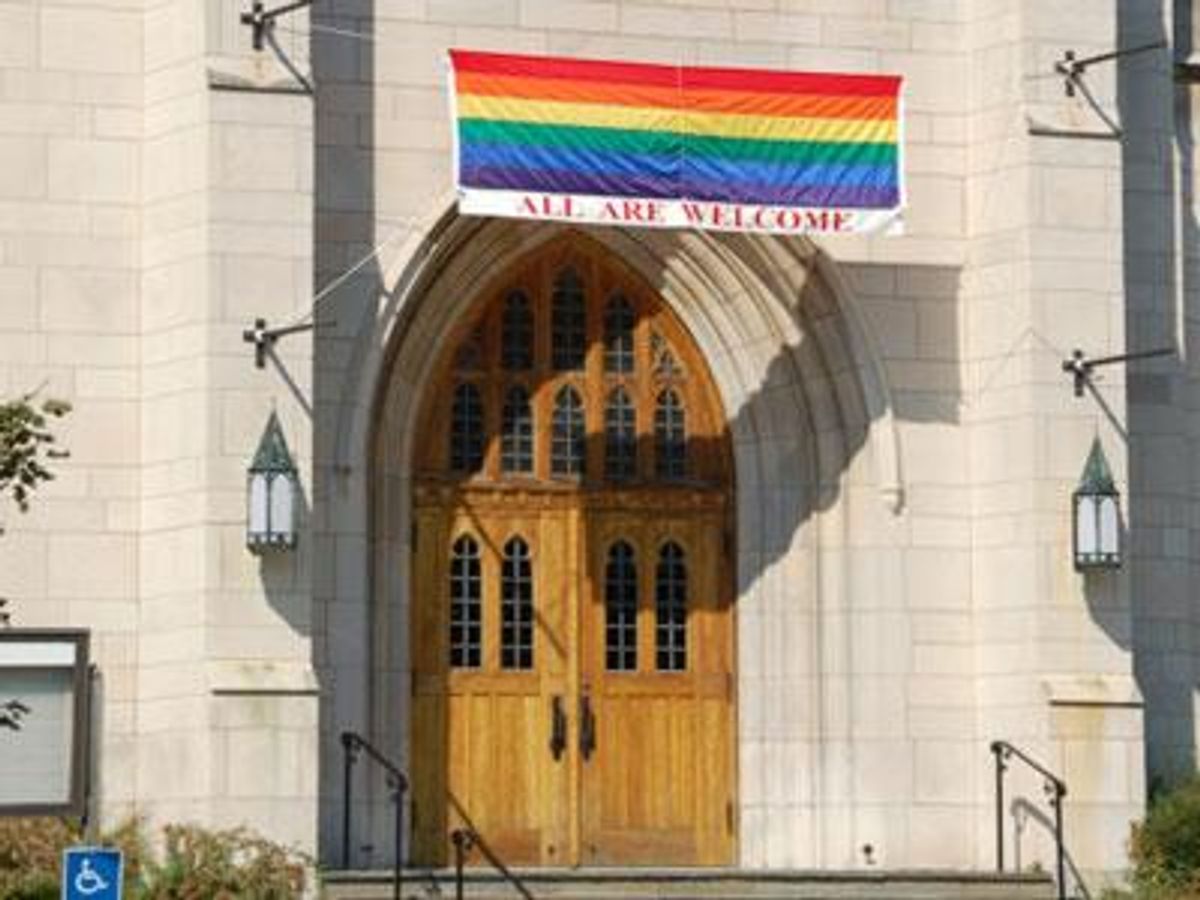Every now and then, a spotlight shines on our American democracy, and when it does, a respectful nod should be offered--if not a rousing standing ovation. Surely this is the case, given how far our country has come in our most recent election regarding the LGBT community. This isn't to suggest that we have arrived as a nation. We haven't. But it's important to say, even though we have a long way to go, we also have come a long way.
As senior minister of First Congregational Church of Los Angeles, I am especially grateful for this progress, because from my perspective as a religious leader, celebrating people for who they really are and supporting their full participation in society, including marriage equality, is not only a democratic thing, it is a profoundly religious thing.
Moreover, it appears (at least from my faith perspective) that God is doing something new and creative and beautiful in America right now; tearing down walls, building bridges of understanding, and reminding people that sexual orientation should never be a barrier in our society.
I gladly cite the following as evidence: Mark Takano from California became the first openly gay Asian American and first GLBT person of color elected to Congress; Tammy Baldwin of Wisconsin became the first openly lesbian woman elected to the U.S. Senate; Sean Patrick Maloney became the first openly gay person to be elected to Congress from the state of New York, while Mark Pocan, an openly-gay man, was elected to Congress from Wisconsin. Furthermore, Jared Polis and David Cicilline, both openly-gay men from Colorado and Rhode Island, respectively, were re-elected to their congressional seats.
While it's true other gay or lesbian individuals have honorably served in the past (I think of Rep. Barney Frank from Massachusetts), what's remarkable about this election is that candidates are moving forward with openness about their sexual orientation, and the American people are making their decisions on the basis of qualification and where a particular candidate stands on the issues, instead of that candidate's sexual orientation. This kind of openness was virtually unheard of a few years ago. And beyond these individual victories, three states--Maine, Maryland, and Washington--have affirmed marriage equality; and in Minnesota, while not passing marriage equality legislation, an anti-gay marriage initiative was rejected from being enshrined in that state's constitution, undoubtedly setting the stage for new marriage rights in the future.
As a clergyperson, I have long advocated for acceptance, compassion and justice for the LGBT community, believing that God is honored best when people are free to be who they really are--not driven into the shadows of shame, but encouraged to live in the full light of day. What we're seeing now across the country is what I have experienced in my individual congregations, namely, that people in the LGBT community have wonderful skill and intellect and creativity to bring to the rest of us, and the more they have an opportunity to share it, the better off we all are for it. We are inching closer to the day when using either religion or politics to discriminate against gay and lesbian persons will be universally rejected.
If there is an American creed, then surely it is this: E Pluribus Unum. Out of many, one. This is the American ideal, and it's forged vote by vote in every election. And given the success of openly gay candidates this year, it appears as if this ideal is well on its way to a new day of realization, and any day that happens is a good day for America.
R. SCOTT COLGLAZIER is senior minister of First Congregational Church of Los Angeles. His most recent book is titled, A Dictionary of Faith: For Open-Hearted, Open-Minded People.

















































































